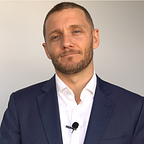Feeling Stuck In Your Job? Ask Yourself These Four Questions
If you are feeling stuck in your career or you deserve a promotion but keep getting overlooked, you’re not alone. A recent study highlights that 62% of workers are “not engaged” with their jobs, and are likely to be on the lookout for better opportunities. An unfortunate byproduct of this is generally a range of emotions we’d rather avoid — disappointment, frustration and shame. Not to mention work consumes most of our waking hours, that’s not how you want to spend your life.
In this article, I ask you four questions to explore your current and future roles. Identifying what needs to STOP, START and CONTINUE to get you moving again.
In a previous article, we looked at how emotional reactions occur when there is a misalignment between our expectations and what we experience. When it comes to our jobs and careers, it’s no different. For example, when going for a new job, you’re likely to be disappointed if they give it to another candidate.
Figure 1 highlights the basis of this exercise; concurrently thinking about the future and the present. The water and crocodile represent the future as a big emotional gap. The unknown aspect of the future makes it a pretty scary place. “What if I’m not good enough? What if I fail?”
But it doesn’t have to be. You just need to know how to bridge the gap. Or perhaps it’s a matter of changing what that next job is. Let’s run through the four questions and give you the tools to start building.
Explore Your Expectations
Depending on your situation, you may need to focus on your overall career or short-term (i.e. next job).
- Career focus: What job do you expect to have at the pinnacle of your career?
- Job focus: What role do you expect to get next in your career?
When I went through this thought process the first time, I focused on the expectations I had set around short-term job progression through my family’s business.
Reveal the How
The second question gets you thinking about the steps you believe will be required to meet this expectation.
- How do you expect to get there?
This journey will look different for everyone. For some, it may be a list of the jobs you’ll need to move through successfully. Others might make a list of the skills they need to acquire. For example, if you want to be a Chief Financial Officer, what are the jobs you’ll need to move through and the qualifications to match? Alternatively, if you’re going to be an artist, maybe you need to get your first solo show and expand your network etc.
For me, I was studying a Masters of Business Administration and working on a lot of self-development. Building on a solid foundation, I was confident it would prove successful.
Highlight the Present
What we do and where we spend our time says a lot about what we truly value.
- What actions (if any) are you taking to help you get there?
Here we want to look at the current actions and behaviours you exhibit on a daily or weekly basis. Think of all the activities that are helping you on that career path. For example; work experience, study, being part of an organised group or recording a podcast.
Personally, this question made a massive impact on my career. As a passionate learner, I realised that I wasn’t seeking out new information and knowledge to grow in that business. It illustrated the actions I was taking were pointing me away from that job and into a different line of work.
Align it All Together
Now you’ve got a clear picture of you’re destination and the present reality, let’s bring the two together.
- Do you need to do more?
Here is the opportunity to identify whether you think your current actions are enough to bridge the gap. Compare your two lists from questions 2 and 3. If your answer is a “yes”, “maybe” or “I don’t know” it’s time to start thinking about what additional actions and behaviours you can begin.
However, it is also possible to bridge the gap from the other side.
- Do you need to change your expectations?
This is one of the elements I love about this exercise. It not only helps you fill in the gaps moving you closer to where you want to be, but it can also help change the expectation itself. Maybe this has helped you realise you’re not doing something you love. Maybe you realised your expectations are based on how you want others to perceive you rather than what intrinsically motivates you.
That is what happened to me. I realised that changing my actions to suit expectations wasn’t going to happen; something else needed to change and I’m all the better for it.
